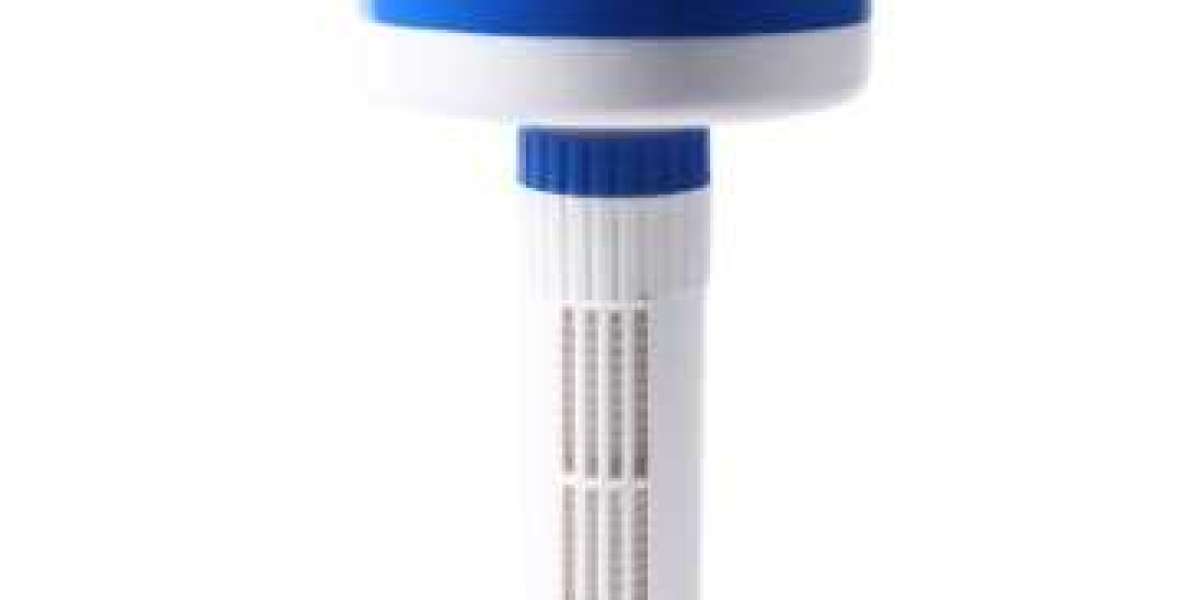Maintaining a clean and safe swimming pool is crucial for the enjoyment and well-being of swimmers. One essential component of pool maintenance is the use of chlorine dispensers. In this article, we will explore the significance of chlorine dispensers in pool maintenance and discuss their various types, benefits, and proper usage.
What is a chlorine dispenser?
A chlorine dispenser is a device designed to release chlorine into the pool water in a controlled and consistent manner. Chlorine is a powerful disinfectant that helps kill bacteria, viruses, and other harmful microorganisms that can thrive in pool water. By using a chlorine dispenser, pool owners can ensure that the chlorine levels in the water are maintained at an appropriate and effective level.
Types of chlorine dispensers
Floating chlorine dispensers:
Floating chlorine dispensers are one of the most commonly used types of chlorine dispensers. These devices are designed to float on the surface of the pool water and slowly release chlorine tablets or sticks into the water.
They typically have an adjustable vent or dial that allows the user to control the rate at which chlorine is released. This ensures that the chlorine levels remain consistent and within the recommended range.
Inline chlorine dispensers:
Inline chlorine dispensers are installed in the pool's plumbing system, typically after the pool pump and filter. These dispensers are connected to the pool's circulation system and release chlorine directly into the water as it flows through the plumbing.
Inline dispensers often use chlorine tablets or sticks, which are placed inside the dispenser and dissolve slowly as the water passes through. This method ensures a continuous and consistent release of chlorine throughout the pool.
Automatic chlorine dispensers:
Automatic chlorine dispensers are advanced devices that use technology to monitor and maintain chlorine levels in the pool automatically. These dispensers are typically connected to the pool's filtration system and use sensors to measure chlorine levels in the water.
Based on the readings, the dispenser can adjust the chlorine release rate accordingly. Some automatic dispensers can even be connected to a smartphone app, allowing users to monitor and control chlorine levels remotely.
Benefits of Chlorine Dispensers
Effective disinfection:
Chlorine dispensers play a crucial role in maintaining proper chlorine levels in the pool water. By ensuring a consistent release of chlorine, these devices effectively kill bacteria, viruses, and other harmful microorganisms, keeping the pool water clean and safe for swimmers.
Time-saving:
Using a chlorine dispenser eliminates the need for manual dosing of chlorine into the pool. This saves time and effort for pool owners, as they don't have to constantly monitor and add chlorine to the water.
Cost-effective:
Chlorine dispensers help in maintaining the optimal chlorine levels in the pool water, preventing over or under-dosing. This ensures that the chlorine is used efficiently, reducing the overall cost of pool maintenance.
Convenience:
Chlorine dispensers, especially automatic ones, offer convenience to pool owners. With automated monitoring and adjustment of chlorine levels, users can enjoy peace of mind knowing that their pool water is being properly disinfected without constant manual intervention.
Proper Usage of Chlorine Dispensers
Before using a chlorine dispenser, it is essential to carefully read and understand the manufacturer's instructions. Each dispenser may have specific guidelines regarding installation, maintenance, and usage.
Choose the appropriate chlorine tablets or sticks:
Different chlorine dispensers may require specific types of chlorine tablets or sticks. It is important to choose the appropriate ones recommended by the manufacturer to ensure compatibility and optimal performance.
Regularly check and clean the dispenser:
To maintain the effectiveness of the chlorine dispenser, it is important to regularly check and clean the device. This includes removing any debris or residue that may accumulate in the dispenser, as well as inspecting for any signs of damage or wear.
Monitor and adjust chlorine levels:
Regularly monitor the chlorine levels in the pool water using a test kit or electronic tester. Adjust the chlorine dispenser's settings accordingly to maintain the recommended chlorine levels.
Store chlorine tablets properly:
When storing chlorine tablets or sticks, ensure they are kept in a cool, dry place away from direct sunlight. Exposure to heat and sunlight can cause the chlorine to degrade, reducing its effectiveness.
Conclusion
Chlorine dispensers are an essential tool in pool maintenance, ensuring clean and safe swimming conditions. By effectively disinfecting the water, preventing algae growth, and reducing maintenance efforts, chlorine dispensers play a vital role in maintaining water quality. Proper usage and regular monitoring are key to maximizing the benefits of chlorine dispensers and ensuring a pleasant swimming experience for all.








